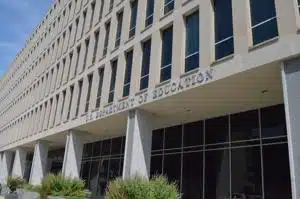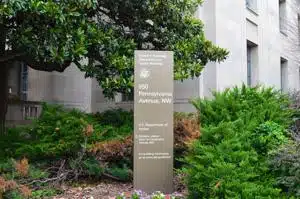(The Center Square) – In a case that could have major implications for the American public school system, the U.S. Supreme Court is considering whether religious charter schools, which are taxpayer-funded, are constitutional.
The St. Isidore of Seville Catholic Virtual School v. Drummond case involves a 2023 decision by the Oklahoma Statewide Virtual Charter School Board to allow St. Isidore to join the dozens of charter schools in the state.
Oklahoma Attorney General Gentner Drummond sued the charter school board, arguing that allowing St. Isidore to join the public charter school program amounts to state-sponsoring of religion.
The Oklahoma Supreme Court ruled in Drummond’s favor, but St. Isidore is arguing before the Supreme Court that contracting with the state to provide free and public education options as a privately run entity does not mean its religious activities constitute “state actions.”
Lori Windham from Becket law firm, which filed a friend-of-the-court brief in support of St. Isidore, told The Center Square that a major question in the case is whether charter schools are closer to traditional public schools or instead function as private schools that are eligible for public funds like scholarships.
“There are already a lot of programs that taxpayers fund for things like federal student loans or federal scholarships that go to religious schools and non-religious schools alike,” Windham said. “Funds to help disabled students, funds to help schools have better security measures to prevent school shootings and hate crime – those go to religious schools and non-religious schools alike.”
“So in that way, this charter school isn’t so different from lots of other programs that are out there where many different people can come in and ask to be part of that program, regardless of whether they’re religious or not,” she added.
Though identifying as a Catholic school, St. Isidore accepts nonreligious students and does not require a statement of faith. Accordingly, the school also argues that an exclusion of St. Isidore from the state’s charter school program, simply because it is religious, violates the First Amendment’s free exercise clause.
“When you have a generally available program, you can’t kick out religious people or religious groups just for being religious. You have to allow them to compete on the same basis as everybody else,” Windham told The Center Square. “And that’s the main argument that the charter school is making here, that they’re just trying to compete for that charter on the same basis as any other private group who wants to start running a school as part of that program.”
If precedent is any indication, St. Isidore has a high chance of winning the case. In 2022, the Supreme Court overturned the state of Maine’s ban on state tuition assistance to students attending religious schools.
But if SCOTUS does rule in Drummond’s favor, other areas where religious students and schools are currently receiving state funds – such as assistance for students with disabilities – could be jeopardized.



















































